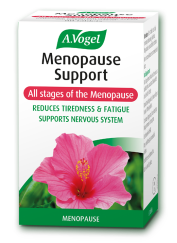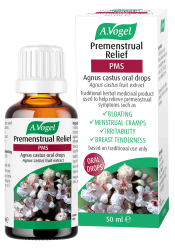An introduction to periods and skin
Have you ever noticed how your skin changes throughout a typical month? It can be really useful to keep a symptoms diary and take a note of how your skin looks and feels. Within a couple of weeks you might notice your soft, glowing complexion transform into an oily mess, not to mention the spots! Then, is it just your imagination or are wrinkles suddenly looking a whole lot more noticeable?
Menstrual acne, oily, dry or sensitive skin can all flare up in the week or two ahead of your period, so yes, skin breakouts are often yet another common symptom of menstrual periods to add to the list.
On this page I describe the different types of skin issues which are common around your ‘time of the month’, what the underlying causes might be and how home, herbal and conventional remedies can help to keep your skin looking healthy.
Types of skin breakouts and what causes them
You might find a variety of skin issues can crop up around the time of your period as follows:
- Acne – Acne is a common complaint for women, especially younger women, around the time of their period. The main reason being – hormones. During the second half of your cycle oestrogen fluctuates but gradually declines, progesterone, another important sex hormones, stays elevated for longer during this time but eventually joins oestrogen and levels fall. Higher progesterone relative to oestrogen at this stage can give rise to an increase in production of sebum (an oily secretion from glands in the skin) and can cause pores to swell, become more noticeable and leaving them more likely to become blocked. Testosterone, the male sex hormone which women have in smaller amounts, is also able to dominate as progesterone and oestrogen levels are so low (ratios of each hormone to the other is so important) and high testosterone very typically creates, angry, sebum loaded spots. For younger women it can take longer for these hormones to settle down into their routine and bigger fluctuations mean more spots. Spots around your top lip or chin can suggest hormones are to blame
- Greasy skin – As with the spots, greasy skin can be result of an overproduction of sebum thanks to higher levels of progesterone and testosterone relative to oestrogen. Excess sebum can make your skin and hair look greasy and give rise to spots
- Dry skin – Around the time of your period starting, oestrogen is at its lowest and your skin might suffer as a result. Oestrogen helps to hydrate your skin and joints and lower amounts can cause dry and thinner looking skin – this can even make wrinkles or lines more obvious as your skin doesn’t appear so plump and full
- Sensitive skin – As low oestrogen makes your skin thinner it can become more sensitive too. So as well as appearing dry and blotchy it is also more likely to become irritated; be especially careful in the sun! As well as oestrogen being at an all time low in time for your period, prostaglandins are produced in order to initiate contractions of your womb. In excess, prostaglandins can diffuse into your bloodstream and can easily exert pro-inflammatory effects elsewhere – the skin can suffer as a result as it becomes more easily irritated. Prostaglandins can also make you more sensitive to pain
- Eczema and psoriasis – Although menstrual periods are unlikely to cause skin conditions such as eczema or psoriasis, around the time of your period you might experience a flare up of symptoms. Low oestrogen can make skin drier, and the addition of prostaglandins can encourage further inflammation.
Diet, lifestyle and home remedies
There are some home remedies and lifestyle changes that can help to support your skin.
- Manage your weight – Being overweight can through your hormones off – some can become blunted whilst others can increase, for example testosterone. Losing weight may help to stabilise your sex hormones and have a positive impact on your skin
- Consider your skin-care regime – Good hygiene is important in order to clean your pores and wash away any excess sebum, however, the type of products you use on your face is also important. Consider natural cosmetics with no harsh chemicals which can irritate your skin and avoid applying too much makeup as you risk making blocked pores worse!
- Apply a warm towel – This is a nice home remedy that will help to pamper your skin. Get in a comfortable position and lay on a flannel soaked in warm water. Let it rest on your face for up to 5 minutes. This helps to gently open your pores and flush out any impurities. It can be a quick and easy relaxation technique too!
- Diet is important and can affect the skin – Added pressure on your digestive system or liver can result in toxins being flushed out via the skin. Ensure your bowels are moving and avoid very fatty foods, refined sugar or alcohol.
Herbal remedies to help
You might want to consider some herbal remedies which can help to keep menstrual breakouts under control
- Soy isoflavones – In some cases if you suspect your progesterone is dominant, gently supporting your levels of oestrogen can help. Menopause Support tablets are targeted mainly at menopausal women, but can also be used by younger women who are experiencing hormone imbalances. Unless you have a hormone imbalance, oestrogen is unlikely to help with your skin directly but having sufficient levels of oestrogen is essential for maintaining good skin (this is a particularly important consideration in menopause). Oestrogen helps to keep your skin hydrated, make pores less visible and keep sebum production under control
- Calendula – Calendula complex has a gentle cleansing action which can be nice to include in your regime if you have particularly troublesome skin.
Please note, if you are taking hormonal contraceptives such as the pill, hormone-balancing herbal remedies may not be suitable for you.
How can my doctor help?
If home or herbal remedies are failing to help you maintain healthy skin, it might be time for a trip to your doctor.
If your skin issues are cyclical and skin breakouts are in sync with your menstrual cycle, you doctor might suggest a hormonal contraceptive such as this pill. This can help correct a hormone imbalance but beware of any side effects.
Other medication such as antibiotics, acne medication or topical steroids may also be prescribed in more extreme cases.








